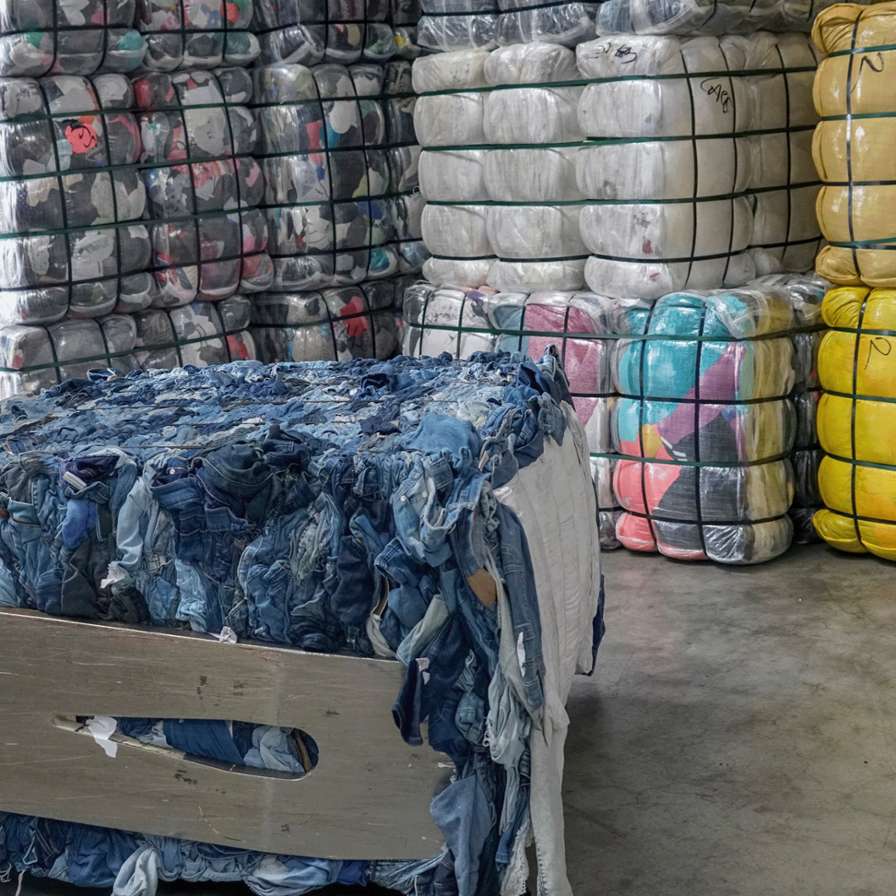CIRCOLLAB: together toward a circular economy

The Netherlands wants to be circular by 2050. This will require an unprecedented transition in the way we do business, collaborate, think and act. In CIRCOLLAB, the the Amsterdam University of Applied Sciences (AUAS), Hogeschool Windesheim and the Amsterdam University of the Arts, together with 32 partners, identify which technological, social and economic innovations are needed in the Amsterdam Metropolitan Area to accelerate the circular transition. And they are looking at how these can be realized with interdisciplinary practice-based research.
The Netherlands circular in 2050
From methods for making buildings circular to systems for repurposing or processing furniture and textiles, there is no shortage of smart sustainability technology. But many circular solutions so far remain limited to lab- and pilot-scale applications. This while the Netherlands wants to make great strides towards a circular economy; the goal is to be circular by 2050. That is why it is important that we all start thinking and acting differently now - from the manufacturer who buys raw materials to the consumer who considers buying a piece of furniture, to the government that authorizes the application of a technology.
It has to be right on all fronts: technological, economic and social. The circular transition requires not only technological innovations, but also new business models, other forms of cooperation, adapted regulations and behavioral change among consumers and professionals alike.

Inge Oskam
Professor of Circular Design and Business
The SPRONG trajectory CIRCOLLAB (Circular Transition through Collaboration in the Metropolitan Region Amsterdam) develops the integral knowledge and insights needed for this, and provides an impetus for translation into actual applications. The accumulated expertise is also applicable in other urban regions.
Setting up knowledge infrastructure
The three universities of applied sciences are developing a regional infrastructure for programming and conducting interdisciplinary research in CIRCOLLAB, together with knowledge and practice partners. They are setting up dynamic learning networks in which partners exchange knowledge and insights about the outcomes of experiments in the region. In doing so, they establish a structural connection with education.
Learning networks
There will be learning networks around four themes:
- Circular thinking and doing: adaptation of values and behavior are needed to realize technical and social innovations at the system level (other ways of working, organization and forms of cooperation). How to stimulate circular values and behavior among citizens, businesses, organizations and governments? How to actively involve the end user in the transition?
- Circular entrepreneurship: what innovations in business operations and organizational models are needed? How can commercial and social goals be combined? How can chain cooperation be shaped to contribute to more collaborative and circular business models
- Circular human capital: what innovations and adjustments are needed in the labor market to enable the circular transition? What offer in training, retraining and coaching is needed to develop human capital with the right knowledge and skills and taking inclusiveness into account?
- Circular collaboration: how to organize collaboration that enables scale-up and systemic change? What changes in governance structures, economic/finance structures and laws and regulations are needed for this?
The themes are linked to two value chains: the built environment and consumer goods. The project thus aligns with the topics on the Dutch government's Knowledge and Innovation Agenda's Circular Economy and Social Desirability.
Education
Insights from the project will be integrated into existing education and new interdisciplinary minor and master programs. AUAS students can participate in CIRCOLLAB through an internship at one of the project partners or a graduation project. But there are also, for example, guest lectures given by project partners or work on practical cases of the partners in courses.
Team
- Julie Ferguson
- Inge Oskam
- Frank Suurenbroek
- Walther Ploos van Amstel
- Stan Majoor
- Martijn de Waal
- Troy Nachtigall
- Reint Jan Renes
- Willem van Winden
35 partners
CIRCOLLAB has 35 partners, including various regional governments, companies and industry associations, knowledge institutions and social and networking organizations. Initiators are the AUAS (leader), Hogeschool Windesheim and the Amsterdam University of the Arts. A complete overview can be found on the CIRCOLLAB website.
Research groups
CIRCOLLAB involves 8 AUAS research groups, 2 of Hogeschool Windesheim and 1 of the Amsterdam University of the Arts.
- Architecture & Circular Thinking
- Circular Design and Business
- City Logistics
- Coordination of Urban Issues
- Civic Interaction Design
- Fashion Research & Technology
- Networking in a Circular Economy
- Psychology for Sustainable Cities
- Spatial Urban Transformation
- Urban Innovation
- Urban Economic Innovation